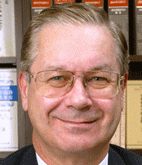Profile of Norman Solberg

After many years of international law practice, I now chose to focus on helping others address an urgent need.
I teach friends and others ways to keep family wealth secure and how to assure that they control how it is put to use.
Your Wealth and How To Keep It
Many are surprised that today most personal wealth in the US and many other parts of the world is self-made, not inherited or confiscated. Think about that! It is earned by individual effort, productive work and intelligence.
(In the US, over 70% of the wealth of the Forbes 400 is self-made. That percentage is growing. In truth, only about 11% is inherited. The Forbes list now covers only multi-billionaires, but the percentage of self-made millionaires is even higher!)
That reflects huge changes. Can you see why 40% of the taxes in the United States is paid by 1% and 70% by the top 10%? They are the most productive workers!
In fact, opportunities exist throughout the world and at all levels of society to copy that achievement, for those who do it the right way.
In one real sense, the matter will always be extremely political. Those lacking wealth (including most governments, which can never spend enough!) always want to share in (or even confiscate) wealth that has been hard-earned by others.
Whether you are citizens of the United States or of another country, you likely are under attack from excessive taxes and bureaucratic regulations, asset seizures, social unrest, political changes, lawsuits and other potential abuses. We all know about information leaks and the loss of privacy today –– and the increasing risks of traditional offshore tax havens.
The issue then becomes how legally to shelter what you have earned. A wise part of this is to preserve your privacy. It can be done, and with proper advice, those with substantial net worth will always stay ahead.
Ask yourself why were so few US citizens listed in the Panama Papers disclosures of 2016? Because they do not need to park money in Panama. There are better solutions.
Many do not know understand that huge benefits are available in certain parts of the United States due to the legal protections there –– for those who how to use them. Of course, the very rich mostly have understood that and others are learning.
I personally know what methods work and how you can benefit from these relatively new devices in the United States. My mission is to counsel others about this. It is very economical to do so.
There is tremendous opportunity. Such approaches are a great investment and are not expensive.
Put title to assets in a favorable place. Use an economical, trustworthy administrative trust company as a professional corporate co-trustee, so you can comply with favorable laws. (There are technical legal reasons for this.) You can benefit from deep expertise, brand leadership, volume of clients and economies of scale, and fees can be extremely reasonable.
Use someone who can work on a collaborative basis with your own investment advisors, lawyers, CPAs, estate planners and other advisors. That way, you can keep your those relationships, or if you are an advisor, you can work with us. Since we do not compete with such advisors, we support and backstop their relationships with clients.
What do I know, and why is it helpful? My philosophy
As a long-time international attorney, I trained with the best. There are perfectly legitimate ways to use existing laws to your benefit. Knowledgeable experts are almost always far ahead of those who want to take your money.
As just one example, the brilliant Columbia law professor Henry P. DeVries, himself a native of the Netherlands Antilles, taught us about the "Dutch Sandwich," a means of sheltering earnings in Europe, way back in the Nineteen Sixties!
Only recently have taxing authorities focused on this device, which in fact has been used by Apple, Facebook and many others for decades. Now the European Commission wants to punish Google for sheltering $3.6 billion (earned in 2015 alone!) through its use of a complex "Dutch Sandwich."
(How would you feel about an entity like the European Commission controlling your funds? Wouldn't companies like that prefer instead to move those earnings back to the United States to benefit their stockholders and capital investments, rather than lose it to an amorphous group of taxing entities?)
Having worked in many parts of the world has made it very clear that different cultures result in different behaviors. The work ethic and the results that it produces simply do not exist among most people in many of those places.
That includes wide areas in Europe. Even some parts of the United States fall short. In recent years, it also has much to do with the less ambitious who now expect governments and politicians, even the European Commission, to support them.
I personally have worked inside many different industries, including manufacturing, finance, banking, high technology, insurance and merchandising. I have worked for law firms representing the wealthy, at senior levels with top management and boards of directors of US and non-US large multinational companies, and directly for very wealthy families.
As fortune would have it, I was one of the four individual lawyers who created modern financial derivatives in London in the 1970s. Today, that is a multi trillion dollar industry.
I have advised on a wide variety of legal issues, ranging from complex business and high technology projects to personal wills, trusts and estate issues for both holders of extremely large fortunes and moderate income families.
I have seen the best with whom to place one's investments, and the worst.
All this has taught me that there are good and bad ways to protect one’s wealth. I truly believe that much of the learning in the popular media either discourages initiative, on one hand, or encourages far too much risk and expense on the other.
I graduated from Columbia University Law School, Columbia College and the incredibly valuable Parker School of Foreign and Comparative Law, Columbia’s post-graduate program on international business and international tax law. 
Columbia University in the City of New York
Including myself, my family now has over 115 years of American expatriates in Asia - spanning five generations, so I am familiar with social, economic and political issues throughout the world.
Protected Investing In the United States • Results That Work • Extraordinary, High Value Outcomes
